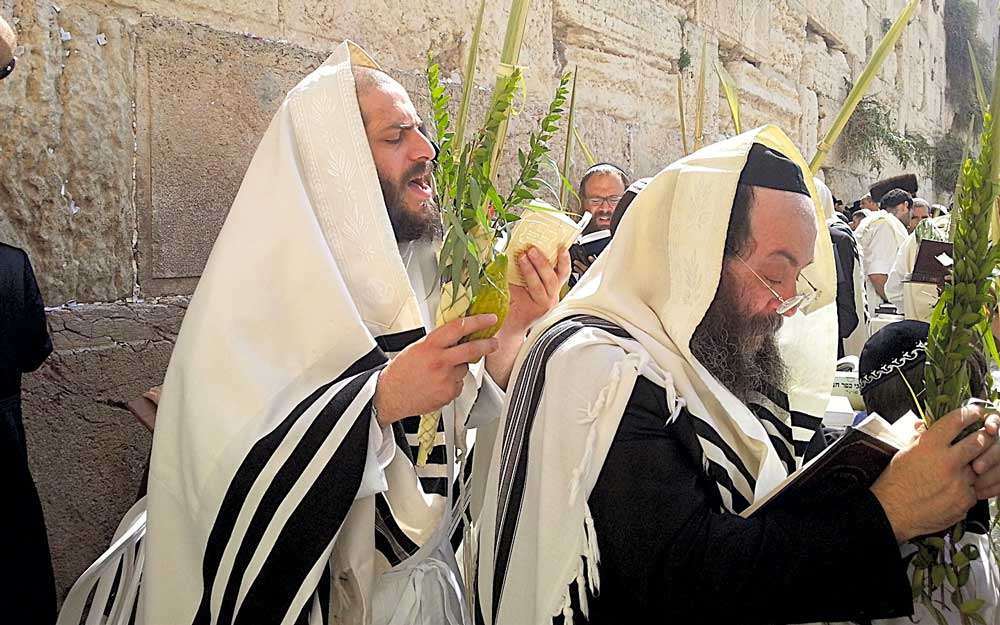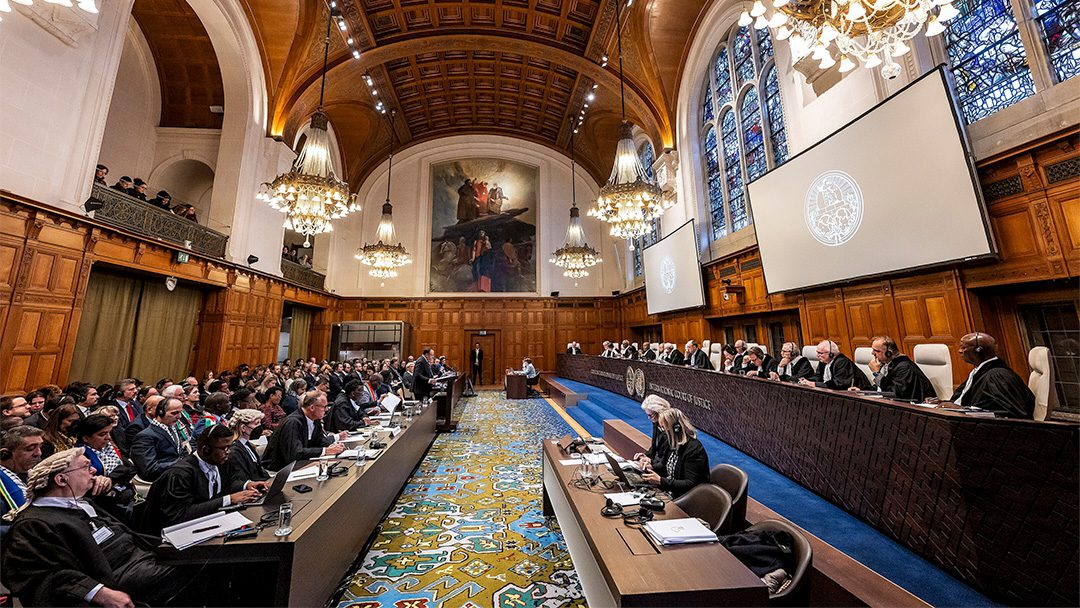For centuries there has been controversy, particularly in Gentile Christian thinking regarding the Biblical feasts and festivals that the Jewish people have upheld for millennia and by way of contrast, what most Christians have upheld traditionally in Sunday observance and Christmas and Easter celebrations.
The origins of the Jewish feasts are clear and precise in scripture as being God given, Holy convocations (special assemblies) which were intended by Him to be eternal.
Most Christians have dismissed these God- given festivals as Old Testament and only for Israel and many believe that if New Testament believers should observe them in any way, we could be placing ourselves under law and in effect negate the New Covenant bene ts in our lives.
If we believe that the Body of Christ (Messiah) is consistent with Paul’s description in Ephesians 2, we should at least be looking for a level of mutual understanding on these important issues with our Messianic brethren.
Firstly let us look at the festivals which God introduced and called His own from Leviticus 23

THE FEASTS OF THE LORD…
SABBATH / SHABBAT
“And the LORD spoke to Moses, ‘Speak to the children of Israel, and say to them: The feasts of the LORD, which you shall proclaim to be holy convocations, these are My feasts. Six days shall work be done, but the seventh day is a Sabbath of solemn rest, a holy convocation. You shall do no work on it; it is the Sabbath of the LORD in all your dwellings.’ “
PASSOVER / PESACH
“These are the feasts of the LORD… On the fourteenth day of the rst month at twilight is the LORD’s Passover. And on the fteenth day of the same month is the Feast of Unleavened Bread to the LORD; seven days you must eat unleavened bread.”
PENTECOST / SHAVUOT
‘Count fty days to the day after the seventh Sabbath; then you shall offer a new grain offering to the LORD. You shall bring from your dwellings two wave loaves of two-tenths of an ephah. They shall be of ne our; they shall be baked with leaven. They are the rstfruits to the LORD.’
THE FEAST OF TRUMPETS / SHANA TOVAH
“Speak to the children of Israel, saying: ‘In the seventh month, on the rst day of the month, you shall have a sabbath- rest, a memorial of blowing of trumpets, a holy convocation. You shall do no customary work on it; and you shall offer an offering made by re to the LORD.’ “
(This also became the Jewish Civil New Year)
THE DAY OF ATONEMENT / YOM KIPPUR
“Also the tenth day of this seventh month shall be the Day of Atonement. It shall be a holy convocation for you; …And you shall do no work on that same day, for it is the Day of Atonement, to make atonement for you before the LORD your God.”
THE FEAST OF TABERNACLES / SUKKOT
“Speak to the children of Israel, saying: ‘The fteenth day of this seventh month shall be the Feast of Tabernacles for seven days to the LORD. For seven days you shall offer an offering made by re to the LORD. On the eighth day you shall have a holy convocation, and you shall offer an offering made by re to the LORD… And you shall take for yourselves on the rst day the fruit of beautiful trees, branches of palm trees, the boughs of leafy trees, and willows of the brook; and you shall rejoice before the LORD your God for seven days… It shall be a statute forever in your generations. You shall celebrate it in the seventh month. You shall dwell in booths for seven days…’ So Moses declared to the children of Israel the feasts of the LORD.” (In Israel today, the eighth day is called Shemeni Atzaret and Simcha Torah (the Joy of the Torah).
It should not seem strange to Gentile believers that Jewish believers in the Messiah would, in most cases, continue to keep Sabbath and the Feasts which God gave them. Unfortunately, many Gentile believers have little understanding nor teaching on these matters.
These were special occasions to remember the goodness of God in the lives of His
people. To remember these wonderful works of God is to honour Him.
These festivals were given directly by the Father, and deemed to be eternal and though prescribed for Israel particularly, why should Gentile believers tend to reject these special events, and even replace them with celebrations which have become traditions but not prescribed by God, but rather of Pagan origins. I speak of Sunday observance and Christmas and Easter celebrations.
None of these are found in scripture, even though they relate to Biblical events, nor were they prescribed for New Covenant believers.
Unfortunately, many Gentile believers have little understanding nor teaching on these matters…
The only prescribed observance in the New Covenant is that instituted by Jesus which was established in the context of the Passover Meal and likens the various items on the Passover table to signi cant events that were about to take place and all were encouraged to remember the miracle works of God through them.
The Communion Service or Lord’s table is just such a remembrance service in relation to His Body and Blood particularly, in which we were instructed to... ‘do this in remembrance of Me’.
In the light of Ephesians 2: 11-16, let us consider these words of Paul…..
“Therefore remember that you, once Gentiles in the esh—who are called Uncircumcision by what is called the Circumcision made in the esh by hands—that at that time you were without Messiah, being aliens from the commonwealth of Israel and strangers from the covenants of promise, having no hope and without God in the world. But now in Messiah Jesus you who once were far off have been brought near by the blood of Messiah.”
“For He Himself is our peace, who has made both one, and has broken down the middle wall of separation, having abolished in His esh the enmity, that is, the law of commandments contained in ordinances, so as to create in Himself
one new man from the two, thus making peace, and that He might reconcile them both to God in one body through the cross, thereby putting to death the enmity.”
(I do not believe that this includes those things that God deemed ‘eternal’ as He obviously ‘knew about’ and planned the New Covenant long before it was introduced by Jesus.)
Perhaps there is room for considering the greater harmony of fellowship we can have with Messianic Jews as we share the New Covenant realities of our lives in Messiah.
Since 1993, Marg and I have conducted Passover Seders over a meal in churches and other venues each year to highlight the signi cance of these Biblical festivals in the light of the New Covenant.
Most have found these occasions very meaningful and associated teaching enlightening, particularly in the light of the Passover Meal that Jesus had with his followers shortly before His death and subsequent resurrection.
People are often amazed at the signi cance and meaning hidden in the Passover Service that relates directly to Him and to the events at that time. Is it reasonable to ignore God’s eternal festivals and replace them with those which He did not prescribe but are of human invention?
In early January, Marg and I conducted a Sabbath Service for 50-60 people in a Baptist church near Melbourne where we celebrated this Biblical event and had a great evening over a meal in worship with prayer, singing and dance.
There is great blessing in welcoming God’s Sabbath, as did Moses, the prophets and all of Israel. It is also important to remember that Sabbath was instituted by God at the time of Creation, long before the Law was given.
Did not Jesus say….
“For the Son of Man is Lord even of the Sabbath.” Matthew 12:8












0 Comments